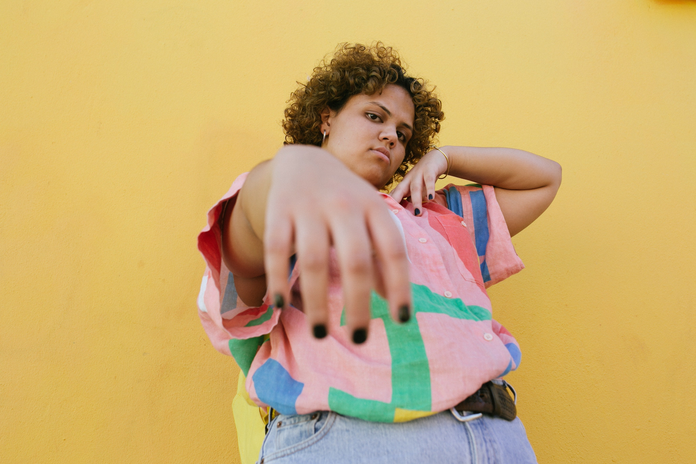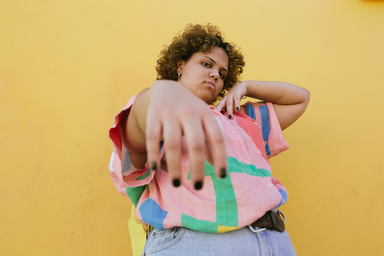Growing up as a plus-sized woman, I realized from an early age that the people in movies, TV shows, and magazines did not look like me. Without any kind of representation, I grew to understand that my body was undesirable.
While plus-size representation in Hollywood has increased, one can still recognize the stereotypes and humor surrounding fat people that these producers tend to play into.
Many young men and women are seeing their bodies on screen for the first time and gaining the same impressions about themselves as I did. Let’s take a look at the different “fat characters” we tend to see over and over again on TV, and how harmful these can be for our self-image.
The character that’s only funny because they’re fat
For some reason, Hollywood will not kick the notion that a plus-sized person falling over or getting hit in the face is the pique of comedy.
This kind of character tends to be the one we blatantly laugh at throughout the film, and let’s be honest, if it were someone of a smaller stature, it just wouldn’t be as funny!
Dear Hollywood, let’s get rid of these characters all together; it’s offensive and insensitive when it’s always the fat person, and it’s just overdone at this point. I have faith that you can think of better, more original content!
Some specific examples of fat comedic relief characters are: fat Amy (and almost every character Rebel Wilson plays), Paul Blart, Fat Albert, and Susan Cooper. Now listen, it’s not that these movies are overall bad, but the films could be just as good without the unnecessary falling, face plants, and blows to the head.
The main character, except the entire plot is about them being fat
Of course, we can’t forget the very few movies and shows in which there is a fat main character who is not there simply to serve as the comedic relief. However, the plot always seems to be centered around them being fat.
After all, we have to remember that every plus-sized individual is made only to be an advocate for others like them, and couldn’t possibly be just a normal human being. (Warning: the sarcasm is not going to let up).
It’s also not uncommon to see the token fat person being played by a mid-sized person. This is problematic for a number of reasons, but mainly because it perpetuates the notion that if you’re not a size four and under, then you’re fat. Hey, Amy Schumer! I’m talking to you!
“Dumplin’,” “I Feel Pretty,” “Hairspray,” and “Mad Fat Diary” are examples of movies and shows that can’t seem to paint plus-sized men and women in a normal light. Why can’t we ever be the main characters of content that doesn’t revolve around being fat?
The character that used to be fat
There’s something about this last one that doesn’t sit well with me at all. It’s one thing to make fun of plus-sized people, but to put small individuals in fat suits and laugh at their hideous “before” looks is a blatant dig at the plus-sized community.
This character is often played by an exceptionally fit and conventionally beautiful actor, and flashbacks of them show a time when their lives were horrible, they had few friends, and no love interests. They tend to be pictured with dingy clothes on while holding a cheeseburger or a piece of cake.
Magically, however, they lost a significant amount of weight and are now highly loved and desired. I don’t even think I have to go into what kind of message this sends.
Examples of these monstrosities in the media are: Monica from “Friends,” Schmidt from “New Girl,” Albert in “Fat Albert” (again), and Patty from “Insatiable.” Seriously, who came up with the plot for these? Hollywood — do better!
Takeaway:
It’s no secret that Hollywood needs to work on its diversity in numerous ways: race, disability, sexual identity, sexual orientation, and gender. This is one aspect of the media by which I’ve been personally affected, and it’s time we start standing up against these issues that influence so many of us.
The representation is growing, but it’s now time to add value and depth behind these characters; human beings are so complex, and should not be made to fit into strict societal boundaries or stereotypes.
We know that the media heavily affects our culture and our thinking, but before you buy into these portrayals, keep in mind how far we still have to go in normalizing the average person. You are so beautiful and so loved — regardless of how you are displayed on screen.





